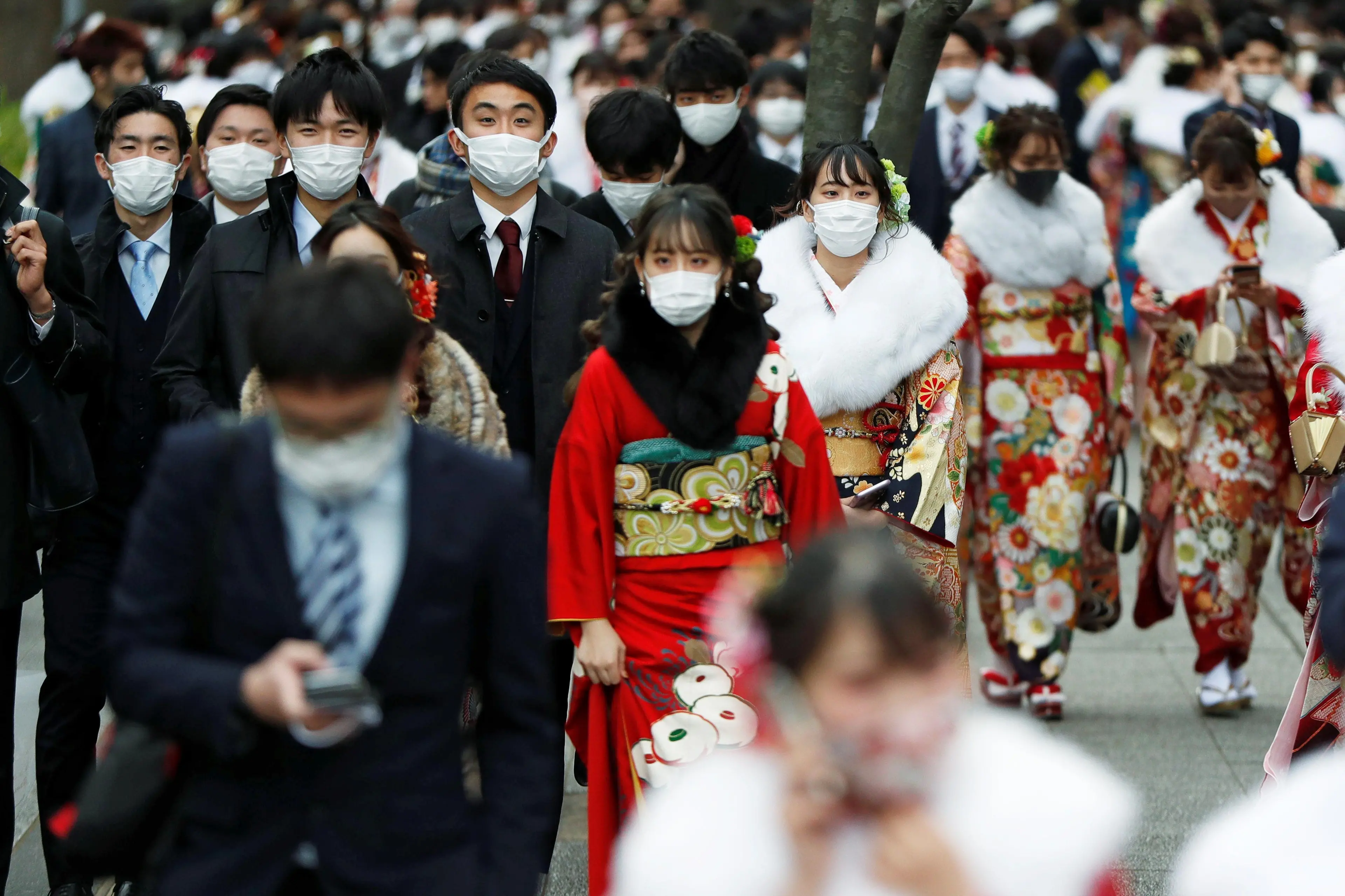PHOTO
Japan’s health ministry has declared a new coronavirus variant in the country. The new strain features 12 mutations, including one that was found in England and South Africa.
Both the UK variant — which is significantly more transmissible — and a second strain in South Africa have raised concerns about whether a vaccine-resistant version could eventually develop.
The Japan variant
According to the National Institute of Infectious Diseases (NIID) in Japan, the new variant was discovered in travellers who had arrived from Brazil. The country is working to isolate and analyse the variant that was detected in the four travellers.
Japan’s National Institute of Infectious Diseases (NIID) has said there are some similarities between the newly detected strain and the ones found in the UK and South Africa. At the moment, it is difficult to determine how infectious the new strain is and if the vaccines are effective against it, NIID said.
Japan recorded 4,670 new cases of Covid-19 on Tuesday and the government has already declared a state of emergency in and around Tokyo as coronavirus cases climb.
Director-General of the World Health Organisation (WHO) Tedros Adhanom Ghebreyesus has refuted claims that the new Japanese Covid mutation is more aggressive.
“Over the weekend, the WHO was notified by Japan about a new variant of the virus. The more the virus spreads, the higher the chance of new changes to the virus,” Tedros said.
But “at present, the variants do not seem to show increased severity of the disease,” he added.
Tedros urged everyone to continue observing personal protective measures, adding that “limiting transmission limits the chance of dangerous new variants to develop.”
The UK variant
Meanwhile in the UK, England’s chief medical officer has warned that the coming weeks would be the worst of the pandemic for the National Health Service (NHS) as he appealed to the public to strictly follow guidelines meant to prevent the spread of the disease.
Chris Whitty said political leaders are considering tightening the rules as the new, more transmissible variant of Covid-19 aggravates an already difficult situation. Hospitals are overflowing and exhausted medical staff are under strain.
“I think everybody accepts that this is the most dangerous time we’ve really had in terms of numbers into the NHS,” Whitty told the BBC.
The B117 coronavirus strain is thought to have first emerged in southeastern England late last year, and has since been detected in dozens of countries around the world.
The South African variant
South Africa is also struggling to cope with a spike in Covid-19 cases that has already overwhelmed many hospitals, as people returning from holiday travel are said to have spread the country’s more infectious coronavirus variant.
Of particular concern is the Gauteng province, the country’s most populous, which includes the cities of Johannesburg and Pretoria. Authorities say it is already seeing a spike in new infections after people travelled to coastal areas, where the new variant is dominant.
Professor Shabir Madhi, a specialist in vaccinology, said that South Africa’s rapid increase in hospitalisation is a “sign of a virus variant that is much more transmissible. Much larger numbers of people are getting infected and more people are needing hospital treatment.”
In response to the resurgence, South Africa has reimposed restrictions to curb the spread of the virus, including closing bars, restaurants, enforcing a night curfew and limiting attendance at public gatherings including church services and funerals. The South African military has been brought in to help enforce a curfew that will be in force in some parts of the country.
© Khaleej Times 2021
Copyright © 2021 Khaleej Times. All Rights Reserved. Provided by SyndiGate Media Inc. (Syndigate.info).





















